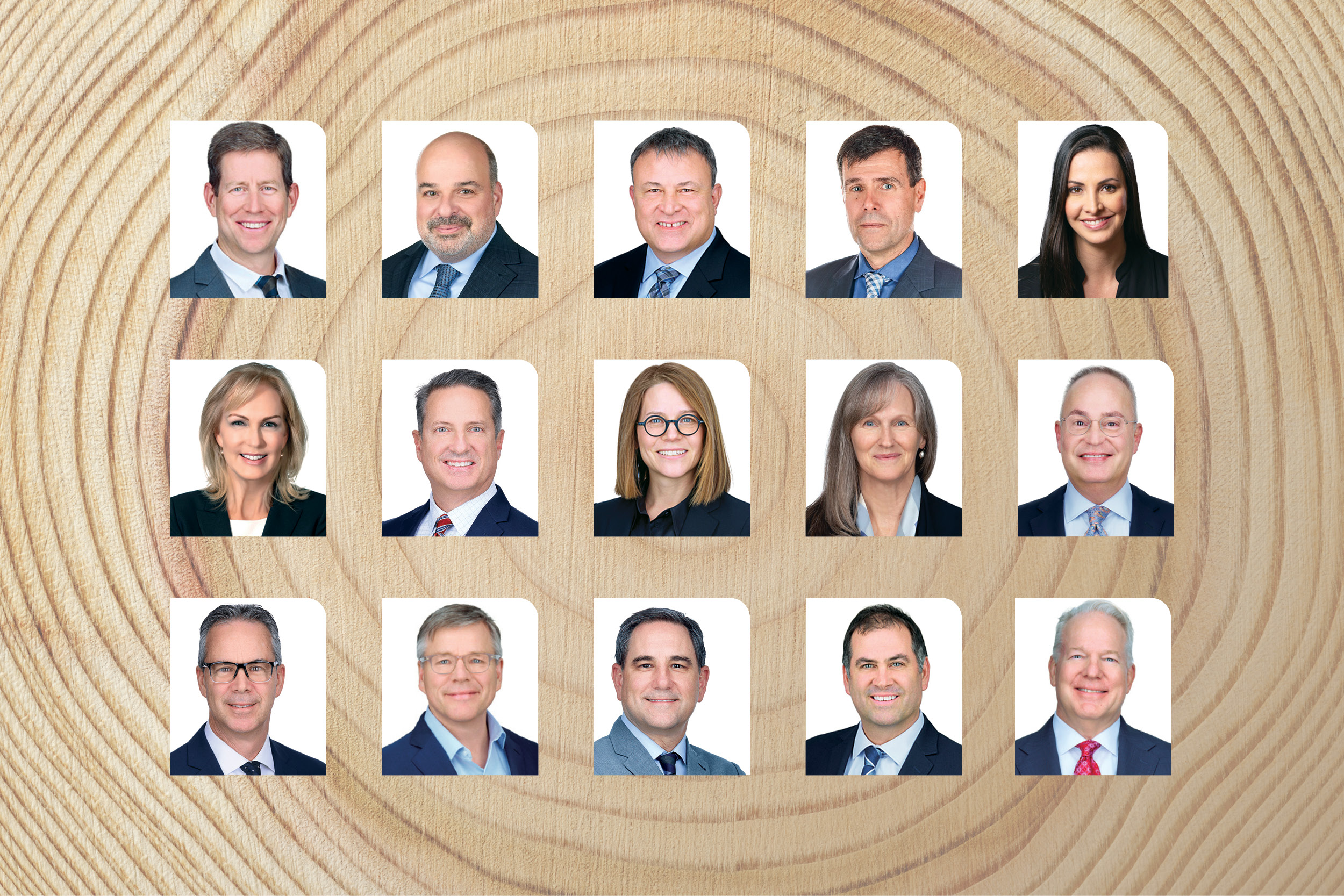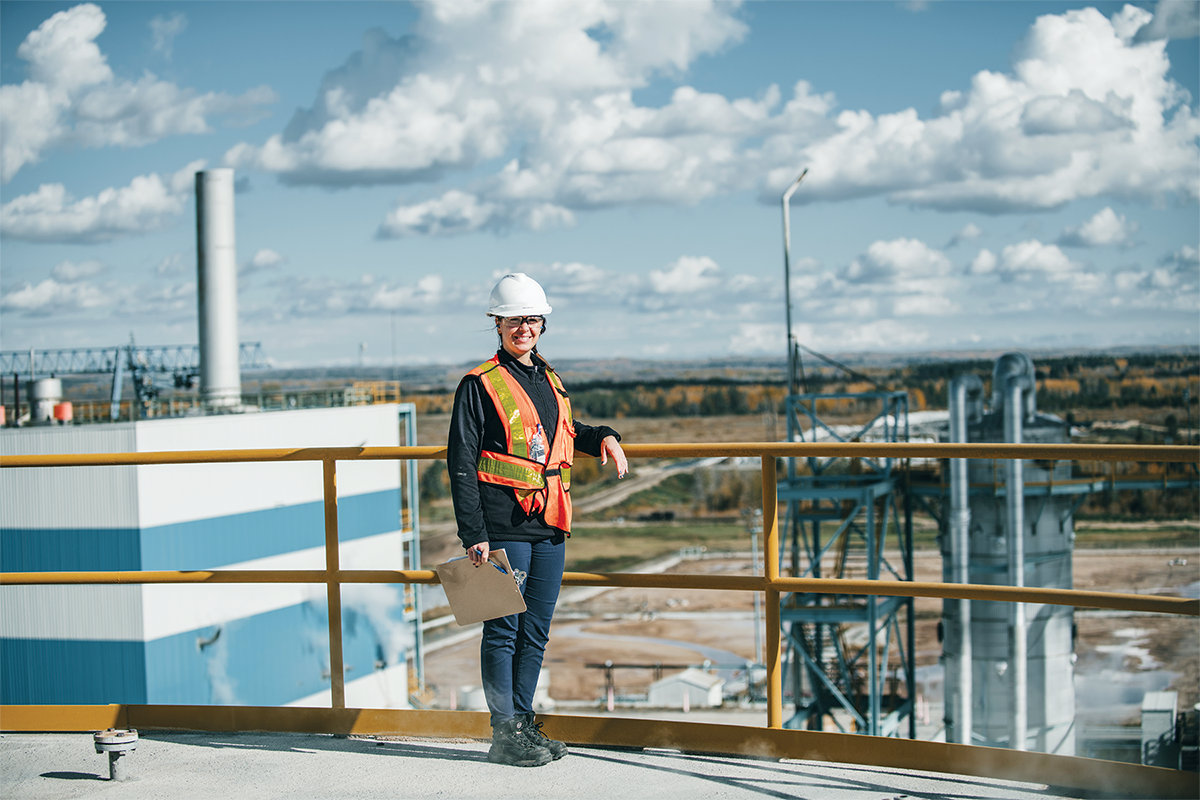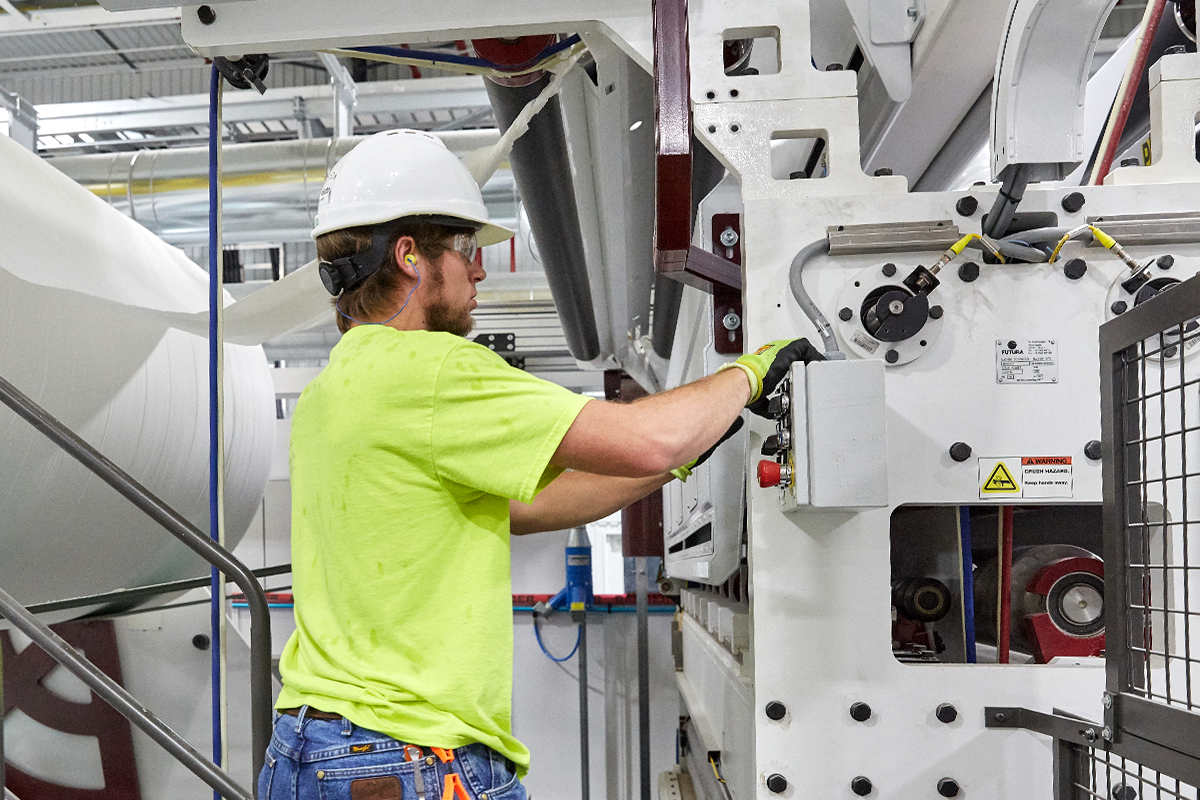
It’s been less than a year since we
set out on a new journey as a leading
North American forest products
company under the Domtar brand. We’ve made great progress, and the release of our new sustainability strategy was truly a defining moment.
Continued

At Domtar, our vision, mission and values guide everything we do — from the way we operate our facilities to how we engage with customers, communities and one another. We are committed to producing industry‑leading forest products while prioritizing transparency, sustainability and strong relationships.
Learn more

In today’s world, sustainability governance is not only key to managing risks and opportunities, but also vital to building a company’s reputation, earning customer trust and inspiring employee loyalty. Domtar’s commitment to conducting all business affairs with integrity within an environment of respect, candor and good faith underlies our governance framework.
Learn more

Domtar is a leading, privately held manufacturer of diversified forest products, with a workforce of nearly 14,000 employees in more than 60 locations across North America.
Learn more

The integration of three legacy companies into one unified organization marked
a unique opportunity for Domtar to develop a comprehensive global sustainability strategy reflecting our shared values and honoring our historical commitments.
Learn more

This report represents Domtar’s inaugural sustainability disclosure as an integrated company, drawing on internationally recognized frameworks and regulations.
Learn more
Domtar’s 2030 Sustainability Strategy is founded on three pillars – Environmental Stewardship, Our People and Communities, and Responsible Business – each defined by a guiding principle in our Global Sustainability Policy.
Our three pillars are supported by 12 sustainability objectives that build on our long‑established commitment to the environment and socioeconomic impact in our operating communities.
Each objective is reinforced by a comprehensive program of performance indicators and 2030 targets that demonstrate the level of ambition we are committed to putting into action over the next five years. Our 2026 targets are vital steps toward making our aspirations a reality.
Our legacy companies had various targets: reducing greenhouse gas (GHG) emissions, minimizing fiber loss and waste, increasing fiber certification, enhancing health and safety, supporting community investment and advancing procurement. Many were set for 2026, with several already met or exceeded before integration. Now that operations have been integrated, Domtar’s new sustainability strategy builds on these commitments which shaped our 2026 and 2030 targets.

As a newly unified company, Domtar relies on global frameworks
and third‑party certifications to guide its actions, validate progress and enhance the transparent communication of the company’s sustainability‑related risks, impacts and opportunities.
Learn more

Domtar’s sustainability performance indicators provide consolidated environmental, social and governance (ESG) metrics from operations across our three business units.
Learn more

This report represents a key outcome of our integration efforts over the past 18 months. It also marks the beginning of a new journey.
Continued
We want to hear from you.
Send us a message
at sustainability@domtar.com